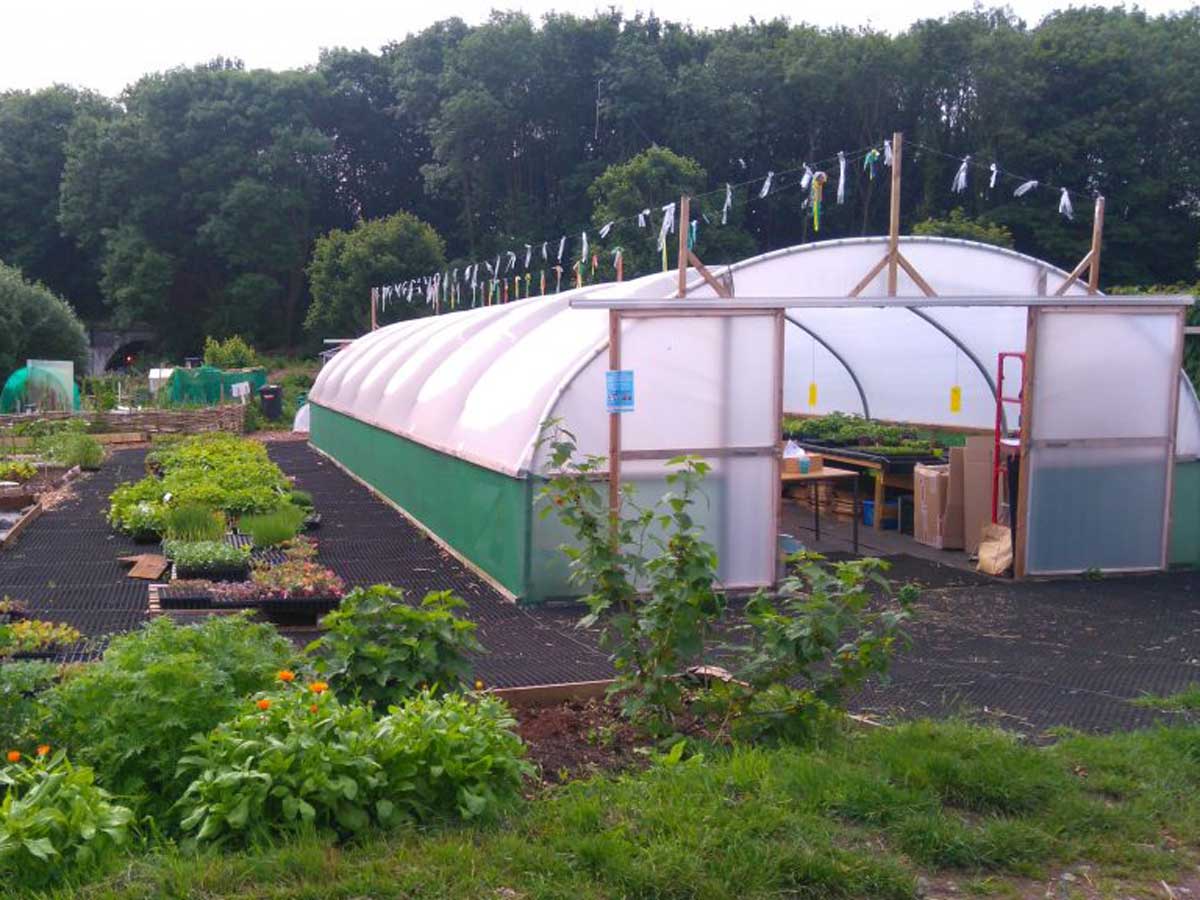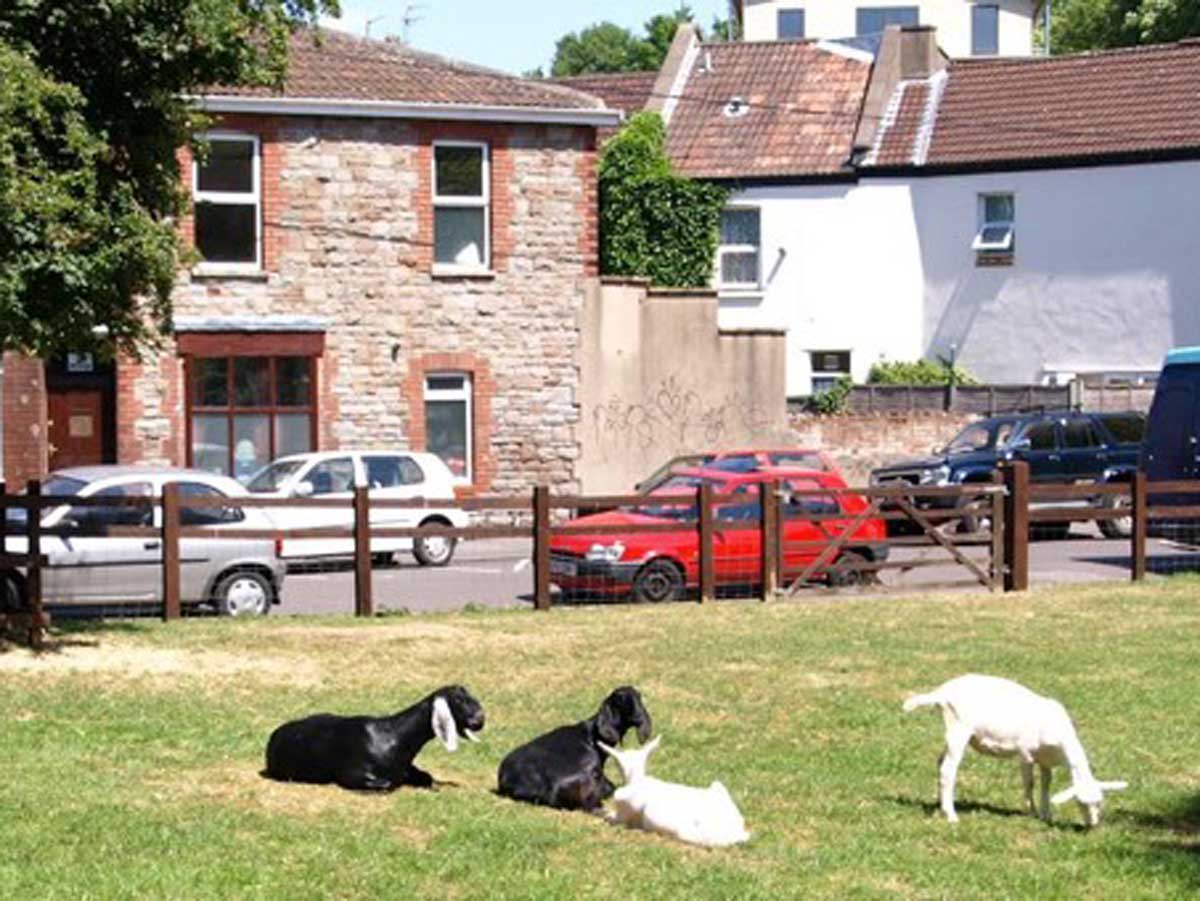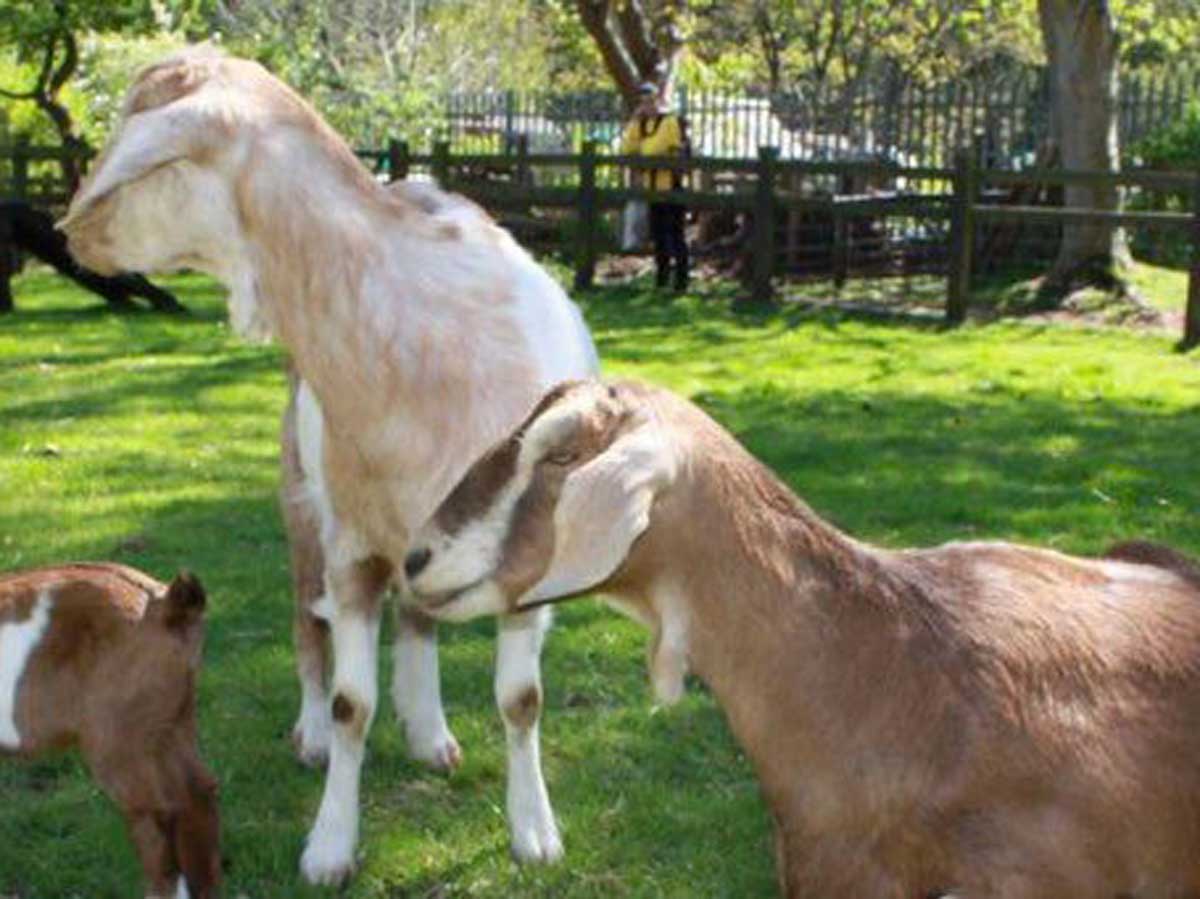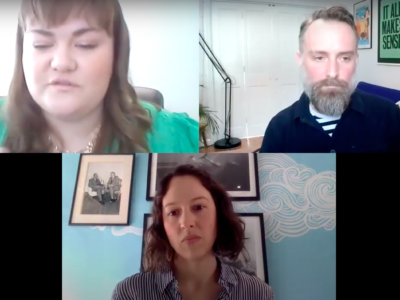St Werburghs City Farm: A Revolution Beckons. Will You Answer Its Call?

Alex talks about the revolution happening right now. In St Werburghs.
St Werburghs City Farm is an improbable place.
St Werburghs City Farm is an improbable place. Caught between railway lines, and crowded by housing estates, its appearance is as sudden and surprising as rounding the corner in Lidl, and bumping into a grizzly bear. Salvaged from derelict industrial land in the 1980s, it is both a model and an inspiration for how a community can turn an eyesore into an asset. It is the green heart of this borough: a hub whose spokes radiate out into a network of allotments, apple orchards, polytunnels, and even people’s gardens and window-boxes. Its living shoots bind the community together; its earth is written into the fabric of this place.
Its living shoots bind the community together; its earth is written into the fabric of this place.
But if the City Farm is a model for the present, an example of thriving community enterprise, it also is a blueprint for the future. The UK’s population is growing at a startling rate – it due to reach 70 million by 2025. Our small island, already crowded, will get busier, more cramped. Competition for resources, such as space for new housing, transport networks, utilities supplies, and food and drink supply-chains will get fiercer, more competitive, perhaps less fair. What is to be done? At present, solutions proposed by the government appear short-sighted. Tax rebates for new housing, subsides for British farmers and suppliers, limited support for the renewable energies industry – these policies might have some effect in the short-term, but they fail to address the longer-term issues that burrow beneath the surface, presaging wide-spread collapse. Instead of depending on top-down governmental action to solve these generational crises, we should instead be taking matter into our own hands and championing projects like the city farm. As it is an enterprise that not only roots the local community, grounding it in a fierce love of place, encouraging essential environmental awareness, but also one that provides an answer to what the future of sustainable urban living might look like. It may not be the answer to the pressing questions – climate change, population pressure, growing tribalism – that darken the edges of our world view, but it is one solution. By proposing a vision of urban living that is fairer, more sustainable, but above all, rooted in local soil and local community, St Werburghs City Farm is a glimpse of how we might face up to the apparently apocalyptic challenges of the 21st Century.

‘There’s a wonderful ethos here – you can see it, you can smell it. But thirty years ago, it was a mess’. This is Peter Kellet, the farm’s current chairman, reflecting on how far the project has come. He’s right – a few decades ago, the site was a ruin. A flooded wasteland of industrial wreckage and mud: the unlovely leavings from the construction of the railway line that runs in front of us, along which trains still periodically roar. Peter didn’t live here then, but a few of the trustees I spoke to did, and they are frank about the state of the site when they first started work on it. To hear them tell it, the area was a social sink-hole: a haunt of addicts, homeless and the dispossessed, those lost and broken by the system. The centre of four of the poorest wards in the country, the site was a powerful visual symbol for the failings of the Thatcherite government, under which you could either sink or swim – here, people sank. Stung by the injustice of this situation, residents banded together and resolved to do something.
And, aided by an initial grant from Bristol City Council, they began to transform the place. Puddles were drained, wreckage was cleared, the beginnings of the present-day site began to take shape.
Its ethos revolves around teaching people, especially children, about the food-chain and placing sustainability front and centre.
This was far more than a community clean-up, though. From the beginning, the project has been marked out by its ambition and vision: central to its philosophy is education and community cohesion. Its ethos revolves around teaching people, especially children, about the food-chain and placing sustainability front and centre. Or, as Peter puts it, ‘focusing on food, from farm to fork’. The irony, as Peter isn’t shy of pointing out, is that we have now come full circle: the farm’s message of eating locally, within the seasons, and with an emphasis on organic produce, has become fashionable once again, and profitably marketable. But whilst big companies rush to ‘green-wash’ their products, and hide their shameful legacies of environmental disregard and ethical callousness, the farm has quietly but insistently been proclaiming its own message: that local is best, and with the soil, as much as with the community, one must put in more than one takes out.
During our conversation, though, it becomes clear that Peter’s vision of what the farm can achieve stretches far beyond education about the food-cycle, and changing environmental attitudes, as valuable as that work is. Indeed alongside their Propagation Place, and the new Connection Centre – a network of classrooms, farmyards, polytunnels and kitchens where visitors can learn about the farm and its work – the farm’s members manage an ambitious program of social work and rehabilitation. As Peter underlines, ‘we work with some very vulnerable people here, and the farm is about helping disadvantaged youth and adults re-engage with society, because otherwise they would spend their days falling out of it, or worse’. At their annual AGM, trustees speak up, sharing stories of people the farm has helped.
One particular story resonates: Alex (not his real name) was an addict and a drop-out when he started working at the farm. Like some of the original inhabitants of the site, he had been living in a van for over five years, refusing to engage with a society that seemed to have forgotten and abandoned him. Gradually, though, his voluntary work on the farm began to lead to better and brighter things: the trustees were able to help him pay for an accredited agricultural course, he got work at a local landscaping firm, and the pay in his pocket and the pride in his labour began to broaden his horizons. He moved out the area, but kept in touch, and the last the members had heard from him, he was in Canada working as a tree-surgeon, thriving, grateful for the new life he had made for himself. Peter shares a similar story of a volunteer who wrote to his local MP on the day that the farm opened their new polytunnels. ‘I came down here because of the polytunnels’, he said. ‘I want to re-connect and start working again. At the farm, I feel valued. Here, I feel trusted’.
[rife-guide-events]
One of the greatest problems it faces has been, and is, the uncertainty of its funding.
The farm’s success was never certain, though, nor is its future secure. One of the greatest problems it faces has been, and is, the uncertainty of its funding. The farm is a charity, and therefore depends, for a large part, on grants for its income. It cannot plan to continue to build and grow, unless it knows it has the funds available to do so.
However, as Peter ruefully admits, in the current political climate, community projects are far down the list of priorities and securing funds is an uphill battle: ‘the rules are constantly changing, and it can be really hard to grow a sustainable work force’.
So far, the farm has continued not only to survive, but to thrive. Last year, it completed construction of its Connection Centre, an ambitious building project that forms the centre-piece for its education and community engagement work. It also has plans to expand provision for its permanent staff by building them a proper office building (currently the whole operation is run out of glorified portacabin). Furthermore, it has made great efforts to be more financially sustainable itself, with funding coming less from outside grants, and more from internal revenue.
But by its very nature as a social enterprise, answerable finally to the needs of the local community, and not the demands of remote share-holders, it will, for the foreseeable future, depend on grants. And thus on the whims of a government that is more intent on defenestrating the country out of EU, and bailing out the floundering ship of the Tory party, than nurturing sustainable community enterprise.

Bluntly though, the shadow that looms largest over the farm’s future, is one of attitude and demographics.
Bluntly though, the shadow that looms largest over the farm’s future, is one of attitude and demographics. I couldn’t help noticing that I was the youngest face at their AGM, and that whilst their weekend events – like the recent Apple Day and Bonfire Night – thrive with young families, most of their volunteers are older. There is a demographic missing between the families with young children and the older members – us, the Millennials, Generation Rent. Slandered by the Right as ‘Generation Snowflake’, we are, supposedly, quick to take offence, and slow to achieve anything meaningful. We are, so the narrative goes, politically naïve and socially incautious. We, of course, feel differently: we are environmentally and ethically aware, more temperate than our parents, and deeply politically engaged. Despite our periodic squawks of protest, though, our efforts so far to instigate change have been, if not futile, then at least woefully ineffective. Social media has the unfortunate effect of both amplifying and deadening attempts to cement meaningful difference. And at almost every level, attitudes and politics that most Millennials abhor – a disregard for climate change, insular nationalism, intolerance of otherness and difference – have flourished in recent years. Britain voted out of the EU; Trump was elected and promptly pulled America out of the Paris Climate Change Accords; and autocracy, violence and hate have continued to propagate and spread, choking weeds inexorably pulling our supposedly more enlightened and interconnected world apart. Just as we are the missing generation at the City Farm, so are we the missing generation on the world stage: our voices ignored, our politics sneered at, our impacts muted.
What is to be done? Certainly, actions and activism should continue to be taken at both an international and national level: the freedom of the press must be upheld, autocracy kept at bay, the vast powers of the internet giants challenged and monitored. But that is action for governments and companies to take, not individuals. It is work of our times, and it may never truly achieve the change that is needed. What I am talking about is what we can do as individuals, as families, as communities. I am talking about making real, meaningful difference in a real, meaningful way. This difference won’t happen at the level of geo-politics, and it’s unlikely to happen at the level of government, and it certainly won’t happen amidst the chirping, tweeting, digital sphere in which we lose so much time. Rather, this change can only be achieved in the here and the now. It is about feeling the dew settle on our faces, the earth heavy in our hands, and the dirt beneath our fingertips.
Volunteer at the farm: get to know the names of the sheep and the pigs. Learn how to pull up a potato correctly.
Get involved – I urge you. Volunteer at the farm: get to know the names of the sheep and the pigs. Learn how to pull up a potato correctly. Taste the difference between a Meadfoot Wonder and a Lemon Summering (they’re apple varieties btw, but you knew that already right?). Or, if you can’t get there, then find out about and get involved with similar projects in your local community. I guarantee there will be charities and social projects crying out for the fresh skills and ideas that our generation can bring. Community, after all, is not an abstract concept, nor is it immune from change and invulnerable to outside forces.
On the contrary, it is a virile, or as vulnerable, as the people that compose it. We are the ones who stand to lose the most, if our ignorant and fatally unsustainable attitudes to food and the life-cycle persist. We will bear brunt of the cost, if our societies fragment into digital atomisation, unchecked tribalism, and hostile nationalism. The choice is ours – do we take the plunge, and get our hands dirty, literally and metaphorically? Or, do we stand back and watch as potent social enterprises like the City Farm fizzle, fade and finally burn out, becoming hollowed-out replicas of the vibrant community centres they once were?

Whilst I was writing this article, I was reading the American writer and farmer, Wendell Berry. He has, throughout his long life, has campaigned tirelessly against the environmental disregard and devastation that, for him, is symbolised by industrial agriculture and big business. And something, in particular, he wrote caught in my mind and could not be shook clear. He composed these lines in 1989, but they are as fresh and necessary as if he wrote them yesterday:
‘Our understandable wish to preserve the planet must somehow be reduced to the level of competence – that is, the wish to preserve all its humble households and economies.’
Berry is not talking here about trade deals and non-binding accords, or about social media campaigns and petitions on Change.org. No, his gaze is focused on something far more serious: soil, and the sound a spade makes sinking into it; on how it feels to pull a vegetable you grew yourself from the ground, and on the pleasures and satisfactions of making it into a meal, and sharing it with family and friends. This is the stuff of living well – that is, of living simply, happily and within yours, and the planet’s, means.
It’s not rocket science, or we would have solved the problem a long time ago. After all, it is an innate part of human nature to dream big, to hatch grand plans, and too often previous generations have succumbed to that temptation. The costs of their ambition are written all around us. But on our increasingly crowded, increasingly unpredictable planet, such hubris must be checked. Perhaps, then, it is the task of our generation to dream smaller, to think more locally, and to live quieter lives that are lesser in scope, but richer in meaning. Start with the soil, grow from there.
If you would like to get involved, please email: getinvolved@swcityfarm.co.uk






